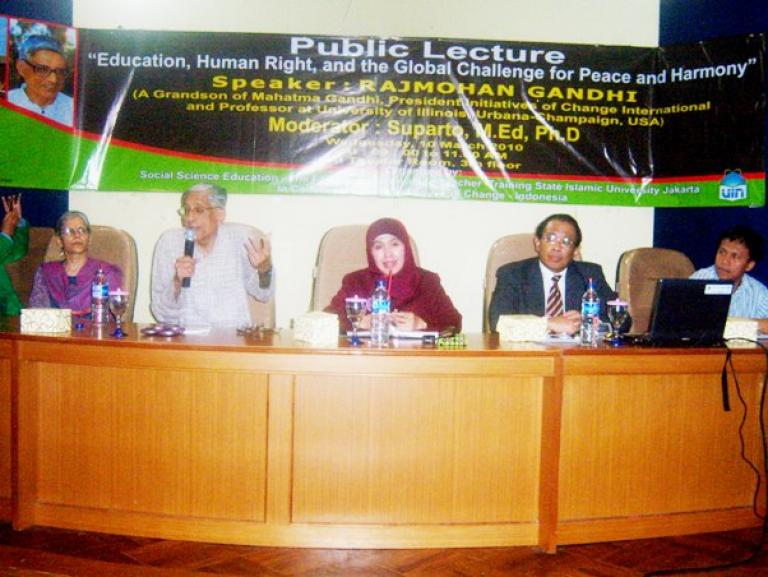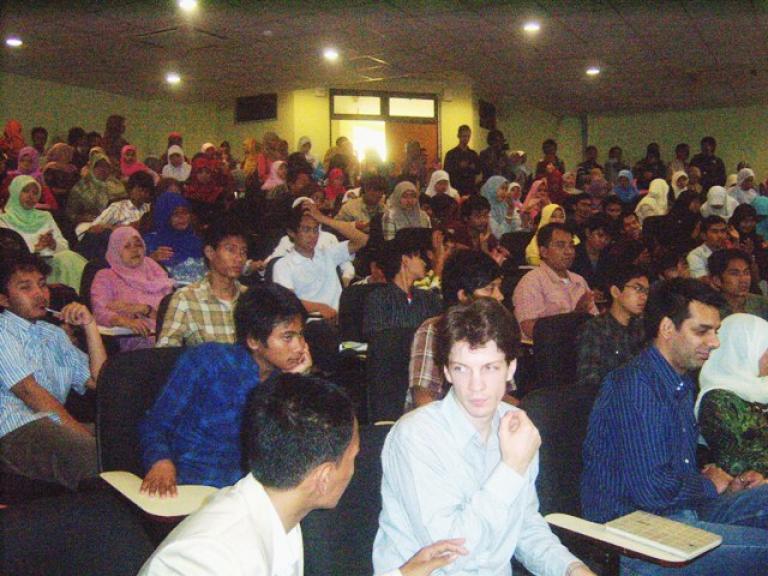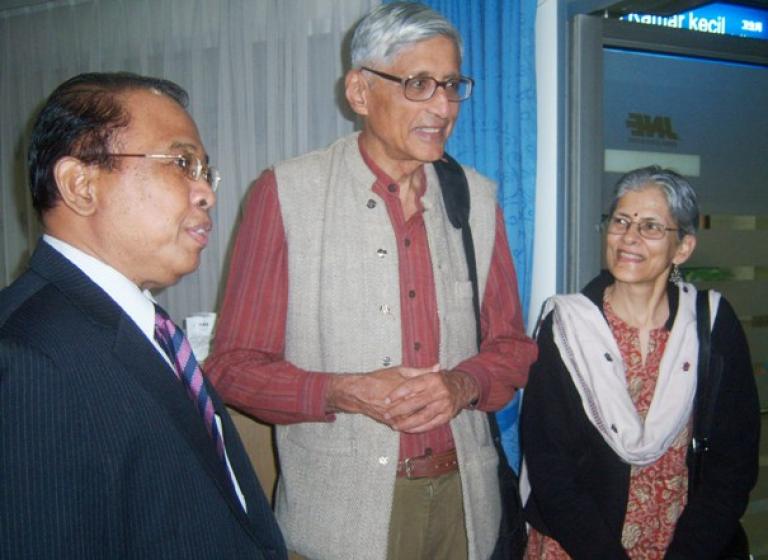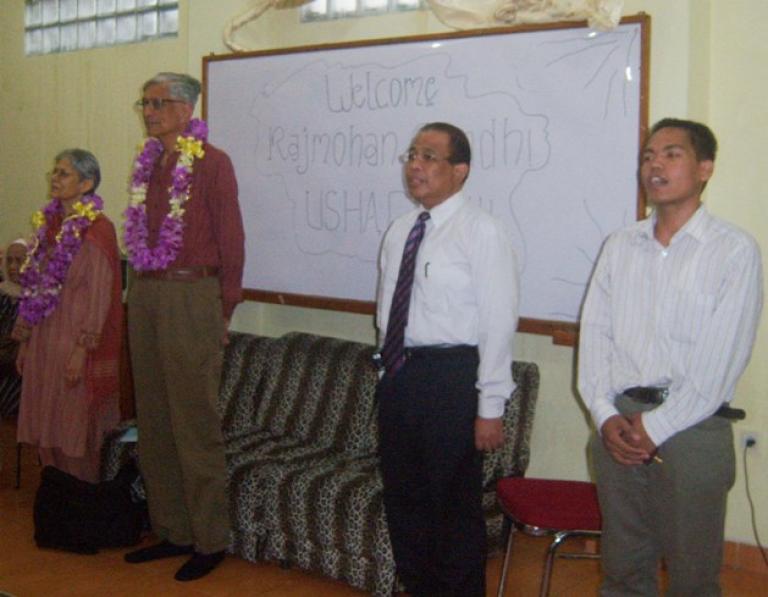
At the age of 16, Rajmohan Gandhi, grandson of Mahatma Gandhi, answered the door one day to receive a message for his father, then editor of the daily Hindustan Times. The message read: ‘Prime Minister of Pakistan, Liaquat Ali Khan, shot. Further details to follow.’ The young Gandhi, keen to impress, retorted: ‘I hope the further news will be that he is dead.’
His unfeeling attitude was transformed very soon after this incident. Relating this childhood anecdote to students at Indonesia’s State Islamic University (UIN) some 59 years later, Prof Gandhi has in the interim devoted a lifetime to reconciliation and trust-building initiatives.

The address to these university students was the first public event on a ‘Voyage of Dialogue and Discovery’, which began last week in Jakarta. The journey will take Professor Gandhi, President of IofC International, his wife Usha, and teams accompanying them to countries in Asia, Africa, the Middle-East, Europe and the Americas, in his words, ‘with a hope for honest dialogue and a desire for collaboration’.
Over the four days in Jakarta, this dialogue included meetings in both UIN and UHAMKA, and affiliates of both Nahdlatul Ulama (NU) and Muhammadiyah, the two largest Muslim organisations in Indonesia – and, with 60 million members between them, the largest in the world. In all these fora, Gandhi emphasised the importance of genuine listening – both to each other, and also in silent reflection for a deeper wisdom – and of reaching out to those around us. At a meeting representatives of NU at their headquarters, Dr Lily Munir, director of the Centre for Pesantren (Islamic Boarding Schools) and Democracy Studies, described from an Islamic perspective the way in which this listening approach had given her fresh insight into her own understanding of prayer and its meaning.

Dr Munir hosted some of the public occasions for the Gandhi party along with Dr Habib Chirzin, human rights activist and president of the Islamic Forum for Peace and Development. The programme for the visit was coordinated and supported by the national team of IofC Indonesia.
Gandhi’s experience of relations between India and Pakistan, and more particularly between Hindus and Muslims, was of particular interest in many of the encounters. Speaking at the Gandhi Memorial School on Friday, he described his experience of multi-faith prayer with the Mahatma as a ten year-old boy. Occasionally, some Hindus would angrily object to the reciting of Koranic verse. If persuasion failed, his grandfather would accept their demand, but would for his part refuse then also to recite from the Bhagavad Gita, moving directly instead to his general remarks – on this principle, he was insistent. Asked by one student how he approaches the tough decisions in life, Gandhi again deferred to his grandfather’s wisdom: ‘Think of the weakest person you know and ask yourself, what will this do for them?’

Throughout the visit, Gandhi emphasised the challenge that is posed by the ‘steamroller of greed’, particularly when teamed with the ‘fear and hate’. Whilst noting that the seeds of these inherent in humanity, along with the desire ‘to control, to lock up, to kill’, his message was one of hope. People must be separated from the problem, he stressed, and the process of change needs to start with the individual. If more people can recognise that their mistakes ‘are their greatest asset’ and that their deep suffering may, over time, ‘become a balm to others’, then the foundations of trust can be laid.
These exchanges of the time in Indonesia present a challenge not just to Indonesians, but to all those who are concerned with what can be done to address injustice and conflict in the world. Others may not be so prepared to assume this challenge, Gandhi acknowledged, but in the same breath quoted Indian author Rabindranath Tagore: ‘Jadi tor daak shune keu naa aashe tabe ekla chalo re’ - if they answer not to thy call, walk alone.
The Indonesian daily newspaper Republika reported on Gandhi's visit.
The voyage continues this week in South Africa.

